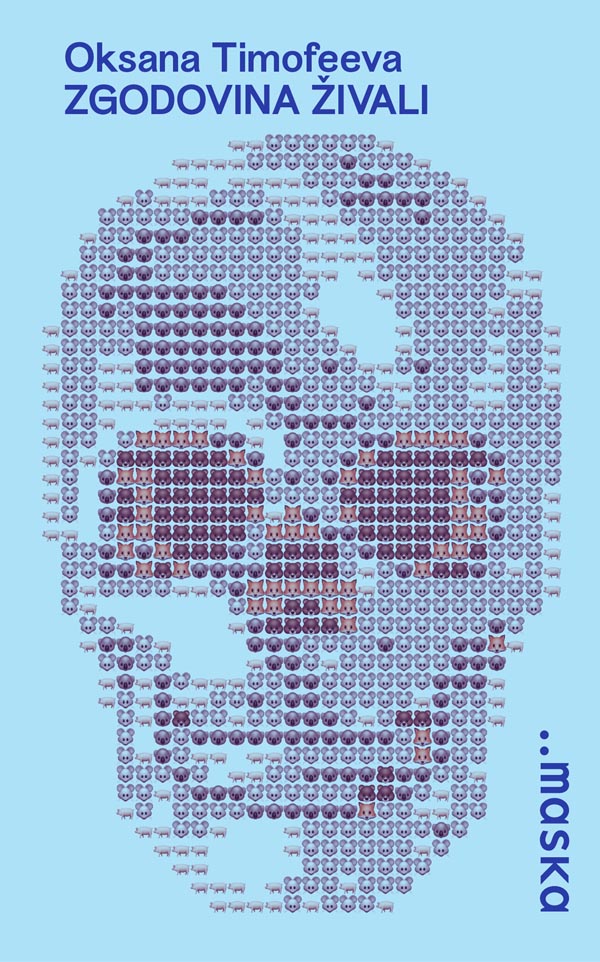Oksana Timofeeva: The History of Animals

Borrowing the title from Aristotle, the book analyses the image of animals in philosophic tradition. In our culture, the phenomenon of animality and phenomena close to it, such as poverty and madness, are examples for the human being to compare to them and thereby define his or her own nature and essence.
The History of Animals is not so much an essay on philosophical zoology but an attempt at a philosophical anthropology of a new kind that would – in contract to the classical, anthropocentric anthropological teachings – not address the centre in which people place themselves, convinced of their own remarkableness, but turns to the margins and borders of humanity.
The author draws animal stories from the great works of philosophy (Aristotle, Descartes, Hegel, Simondon, Heidegger, Bataille) and literature (Kafka, Andrej Platonov), analysing the
marginal cases in which reversed shapes and ways of becoming rise through special strategies of knowledge and power.
Mediakcije Collection, book no. 18
Original title: The History of Animals: A Philosophy
Translation: Aleksandra Rekar
Preface: Bara Kolenc
Collection editor: Gregor Moder
12 × 19cm
© Maska, Ljubljana, 2019
ISBN 978-961-6572-56-9
This book was published in Slovenian.
Excerpt
“This book is not a philosophical bestiary: I do not touch upon the question of animal symbolism, but rather focus on a ‘naïve’, literal, ‘direct’ or symptomatic reading of the metaphysical tradition, respecting the rules of its games even though these rules are always already outdated, without pretending to unveil a certain ‘reality’ behind these games. The narrative structure that is at stake here works without being necessarily exposed in a framework of a kind of ‘critical realism’ that refers to a current state of affairs. In my History of Animals, humans, things, souls, cosmos, alienation, communism and so on are all characters, playing their part in a metaphysical scenario, written by no one.”
Oxana Timofeeva, The History of Animals
Book presentation
About the Author

Oxana Timofeeva (born in 1978 in Siberia) is lectures on philosophy at the European University in St. Petersburg and is Senior Research Fellow at the Institute of Philosophy of the Russian Academy of Sciences, Moscow. She is a member of the art collective Čto delat’? (kaj storiti?), the editor of the Stasis journal and the author of Vvedenie v èrotičeskuju filosofiju Žorža Bataja (Eroticism in Philosophy of George Bataille, An Introduction, NLO
2009). Originally written in English, her History of Animals was published in 2012 (Jan van Eych), translated into Russian in 2017 (Novoe literaturnoe obozrenie) and translated into Slovenian after the updated Bloomsbury edition (2018).
Table of contents
Zahvale
Predgovor
1
Ojdip, konj
2
Pred zakonom
3
Nori
4
Negotovi, tesnobni in nesrečni
5
Nezaposlena živalskost
6
Dialektika ribe
7
Pastir biti
8
Ubožno življenje
Bibliografija
Spremna beseda
Bara Kolenc: Druga zgodovina živali
Imensko kazalo
Reception in public
Pia Nikolič: Kje se konča žival in začne človek?
Radio Študent / Destilator / 19. 4. 2020
O prevodu Zgodovine živali Oksane Timofeeve
TV Slovenija / Kultura / 28. 2. 2020
Zakaj je tudi odnos do živali političen?
TV Slovenija / Studio City; na 35:28 / 2. 3. 2020
Tomaž Bodbevšek: Kako se je izgradila žival; analitični povzetek knjige Zgodovina živali Oksane Timofeeve
Animot / 30. 10. 2020
The history of animals is actually a history of claiming, sacrificing, punishing, killing, and exterminating animals. It is a history where animals have no voice; this is why the author’s idea that animals are as much as people the constructors of history is even more important. By granting animals a wider political and historical context to animals, Timofeeva grants them subjectivity.